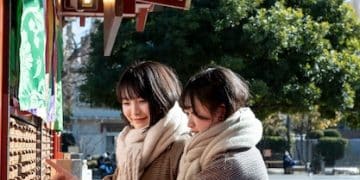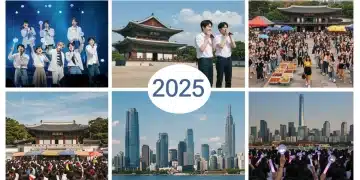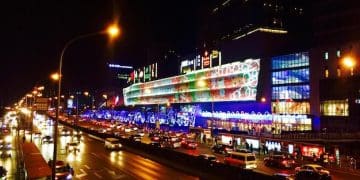Mastering Korean Phrases: US Travelers’ Survival Guide 2025
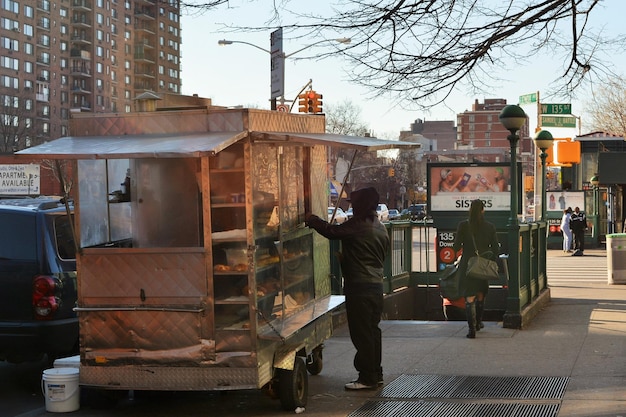
Mastering basic Korean phrases is crucial for US travelers planning a trip to South Korea in 2025, enhancing their experience and enabling smoother interactions with locals. This survival guide offers essential phrases and cultural insights for a more immersive and respectful journey.
Planning a trip to South Korea in 2025? Mastering basic Korean phrases can significantly enhance your travel experience, allowing you to navigate daily situations with ease and connect with locals on a deeper level.
Why Learn Basic Korean Phrases?
Before embarking on your adventure to South Korea, understanding the importance of learning some basic Korean is essential. It’s not just about convenience; it’s about respect and cultural immersion.
Learning even a few phrases can transform your trip from a touristy experience to a more authentic cultural exchange. Here are a few reasons to prioritize learning Korean phrases:
Enhanced Communication
While many younger Koreans in tourist areas may speak some English, relying solely on English can limit your interactions. Knowing basic phrases allows you to communicate with a wider range of people and navigate situations more effectively.
Cultural Respect
Attempting to speak the local language demonstrates respect for the culture and people. Koreans appreciate the effort foreigners make to learn their language, and it can lead to warmer interactions.
Deeper Immersion
Language is a gateway to understanding a culture. Learning basic phrases will give you a glimpse into Korean customs, etiquette, and values, enriching your overall travel experience.
By making an effort to learn the language, you’re showing that you value and respect Korean culture. This can lead to more meaningful interactions and a more rewarding travel experience.
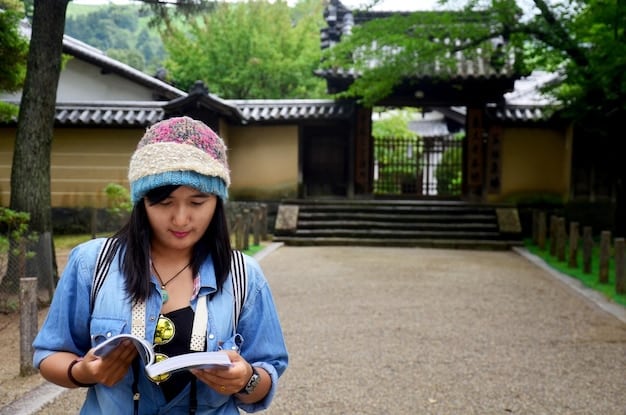
In conclusion, learning basic Korean phrases is not just practical; it’s a sign of respect and a key to unlocking a more immersive and rewarding travel experience in South Korea.
Essential Greetings and Polite Expressions
Starting with the basics, greetings and polite expressions are fundamental for any interaction. These phrases will help you make a good first impression and ensure your interactions are respectful.
These essential phrases form the foundation of polite conversation and can open doors to more meaningful interactions:
- 안녕하세요 (Annyeonghaseyo): Hello (formal). This is the most common and versatile greeting.
- 감사합니다 (Gamsahamnida): Thank you (formal). Essential for showing appreciation.
- 죄송합니다 (Joesonghamnida): I’m sorry (formal). Useful for apologizing or excusing yourself.
- 네 / 아니요 (Ne / Aniyo): Yes / No. Simple but crucial for basic communication.
Pronunciation Tips for Beginners
Korean pronunciation can be challenging for English speakers. Here are a few tips to help you get started:
The pronunciation of Korean can be tricky, but with practice, you can master these essential phrases.
Focus on vowel sounds. Korean vowels are distinct from English vowels, so listen carefully and try to mimic the sounds.
Pay attention to consonant sounds. Some Korean consonants have different pronunciations depending on their position in a word.
Use online resources. Many websites and apps offer audio recordings of Korean phrases, which can help you improve your pronunciation.
By mastering these basic greetings and polite expressions, you’ll be well-equipped to start conversations and show respect in various situations.
Navigating Transportation: Airports, Subways, and Taxis
South Korea has an efficient and modern transportation system. Knowing a few key phrases can make navigating airports, subways, and taxis much smoother.
From arrival to departure, you’ll encounter various transportation scenarios. Here are some useful phrases to help you navigate these situations:
Airport Essentials
- 어디에서 수하물을 찾을 수 있습니까? (Eodieseo suhamureul chajeul su itsseumnikka?): Where can I find my luggage?
- 화장실은 어디에 있습니까? (Hwajangsireun eodie itsseumnikka?): Where is the restroom?
- 환전소는 어디에 있습니까? (Hwanjeonseoneun eodie itsseumnikka?): Where is the currency exchange?
Subway Survival
The subway is an excellent way to get around major cities like Seoul and Busan.
Navigating the subway system can be daunting at first, but these phrases will help you find your way:
- [Station Name]에 어떻게 가나요? ([Station Name]e eotteoke ganayo?): How do I get to [Station Name]?
- 이것은 [Station Name]행 입니까? (Igeoseun [Station Name]haeng imnikka?): Is this train going to [Station Name]?
- 표는 어디에서 살 수 있습니까? (Pyoneun eodieseo sal su itsseumnikka?): Where can I buy a ticket?
Taxi Talk
Taxis are readily available, but communicating your destination is essential.
Taking a taxi can be convenient, especially when you have heavy luggage or are in a hurry. Here are some phrases to help you communicate with the driver:
- [Address]로 가주세요 ([Address]ro gajuseyo): Please go to [Address].
- 여기서 세워주세요 (Yeogiseo sewojuseyo): Please stop here.
- 얼마예요? (Eolmayeyo?): How much is it?
With these phrases in your repertoire, you’ll be able to confidently navigate South Korea’s transportation system and reach your destinations with ease.
Dining Out: Ordering Food and Understanding Menus
Korean cuisine is a highlight of any trip to South Korea. Knowing how to order food and understand menus will enhance your dining experience.
Food is an integral part of Korean culture, and dining out is a common social activity. These phrases will help you navigate restaurants and enjoy the local cuisine:
Reading Korean Menus
Korean menus can be intimidating, but understanding a few key words can make the process easier.
Learning a few basic Korean words can transform your dining experience.
- 밥 (Bap): Rice
- 국 (Guk): Soup
- 김치 (Kimchi): Fermented cabbage (a staple in Korean cuisine)
- 물 (Mul): Water
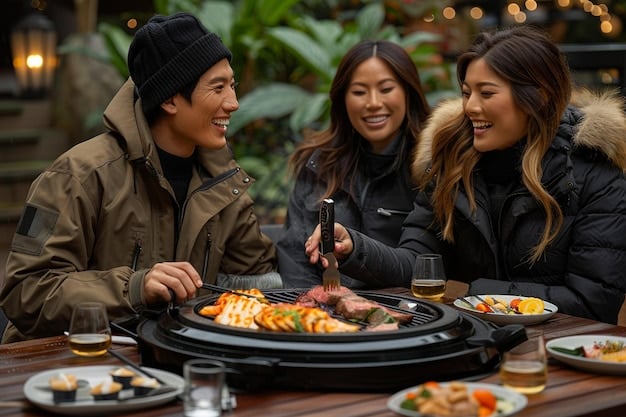
Ordering Food Like a Pro
When ordering food, these phrases will help you communicate your preferences and needs:
Make your dining experience smoother with these phrases.
- [Dish Name] 주세요 ([Dish Name] juseyo): Please give me [Dish Name].
- 맵지 않게 해주세요 (Mapji anhge haejuseyo): Please make it not spicy.
- 채식주의자예요 (Chaeshikjuuijaeyo): I am a vegetarian.
- 물 좀 더 주세요 (Mul jom deo juseyo): Please give me more water.
Paying the Bill
When you’re ready to pay, use these phrases:
- 계산해주세요 (Gyesanhae juseyo): Check, please.
- 카드로 계산해도 돼요? (Kadeuro gyesanhaedo dwaeyo?): Can I pay with a credit card?
By mastering these phrases, you’ll be able to confidently order food, understand menus, and enjoy the delicious and diverse Korean cuisine.
Shopping Smart: Bargaining and Asking for Prices
Shopping in South Korea is a must-do activity, from bustling markets to modern department stores. Knowing how to bargain and ask for prices can help you get the best deals.
Whether you’re looking for souvenirs, clothing, or electronics, these phrases will help you navigate the shopping scene:
Asking for Prices
Knowing how to ask for the price is essential in any shopping situation.
Start with these phrases for smooth transactions.
- 얼마예요? (Eolmayeyo?): How much is it?
- 너무 비싸요 (Neomu bissayo): It’s too expensive.
Bargaining Tips
Bargaining is common in traditional markets, but not in department stores.
Here are a few tips and phrases to help you negotiate prices:
Be polite and respectful. Bargaining is a negotiation, not a confrontation.
Start with a lower offer. Offer a price that is lower than what you’re willing to pay.
Be willing to walk away. If the vendor doesn’t agree to your price, be prepared to walk away. Sometimes, they will call you back with a better offer.
Useful Phrases for Bargaining
- 좀 깎아주세요 (Jom kkakkajuseyo): Please give me a discount.
- 이것보다 더 싼 거 있어요? (Igeotboda deo ssan geo isseoyo?): Do you have anything cheaper than this?
With these phrases and tips, you’ll be able to confidently navigate the shopping scene in South Korea and get the best deals on your purchases.
Emergencies and Seeking Help
While we hope you won’t need them, knowing a few phrases for emergencies and seeking help is crucial for any traveler.
Being prepared for unexpected situations can provide peace of mind and ensure your safety. Here are some essential phrases:
Emergency Phrases
- 도와주세요! (Dowajuseyo!): Help!
- 경찰을 불러주세요 (Gyeongchareul bulleojuseyo): Call the police.
- 구급차를 불러주세요 (Gugeupchareul bulleojuseyo): Call an ambulance.
- 길을 잃었어요 (Gireul ileosseoyo): I’m lost.
Seeking Medical Assistance
If you need medical assistance, these phrases can help you communicate your needs:
- 아파요 (Apayo): I’m sick.
- 의사가 필요해요 (Uisaga piryohaeyo): I need a doctor.
- 약국은 어디에 있습니까? (Yakgugeun eodie itsseumnikka?): Where is the pharmacy?
Reporting a Lost Item
If you lose a personal item, you’ll want to file a report.
Use these expressions for assistance.
- 여권을 잃어버렸어요 (Yeogwoneul ileobeoryeosseoyo): I lost my passport.
- 가방을 잃어버렸어요 (Gabangeul ileobeoryeosseoyo): I lost my bag.
By learning these emergency phrases, you’ll be better prepared to handle unexpected situations and seek help when needed, ensuring a safer and more secure travel experience.
| Key Phrase | Brief Description |
|---|---|
| 👋 안녕하세요 (Annyeonghaseyo) | A versatile and respectful greeting meaning “Hello.” |
| 🙏 감사합니다 (Gamsahamnida) | Expresses gratitude, meaning “Thank you.” |
| ❓[Dish Name] 주세요 ([Dish Name] juseyo) | Used when ordering food, meaning “Please give me [Dish Name].” |
| 🆘 도와주세요! (Dowajuseyo!) | A critical emergency phrase meaning “Help!” |
Frequently Asked Questions (FAQs)
▼
Learning Korean phrases enhances communication, shows cultural respect, and allows for deeper cultural immersion, making travel experiences richer and more meaningful.
▼
Essential greetings include “안녕하세요 (Annyeonghaseyo)” for hello, “감사합니다 (Gamsahamnida)” for thank you, and “죄송합니다 (Joesonghamnida)” for I’m sorry, among others.
▼
You can use phrases like “[Station Name]에 어떻게 가나요? ([Station Name]e eotteoke ganayo?)” to ask how to get to a specific station, and “[Address]로 가주세요 ([Address]ro gajuseyo)” in taxis.
▼
Helpful phrases include “[Dish Name] 주세요 ([Dish Name] juseyo)” to order food, “맵지 않게 해주세요 (Mapji anhge haejuseyo)” to request it not spicy, and “계산해주세요 (Gyesanhae juseyo)” to ask for the bill.
▼
Emergency phrases include “도와주세요! (Dowajuseyo!)” for help, “경찰을 불러주세요 (Gyeongchareul bulleojuseyo)” to call the police, and “길을 잃었어요 (Gireul ileosseoyo)” for I’m lost, among others.
Conclusion
Mastering basic Korean phrases is more than just a convenience for US travelers in 2025; it’s an investment in a richer, more immersive cultural experience. By learning and using these phrases, you not only navigate daily situations with greater ease but also demonstrate respect and openness to Korean culture, paving the way for more meaningful connections and unforgettable memories.
